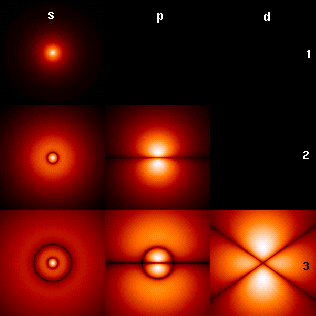Quantum mechanics, the study of quantum physics, and logic, our reasoning can be used together to come up with a new way of thinking about logic.
I will run over QM and logic briefly.
Logic. The way in which we rationalize, we look at two things and connect them. (in laymans terms) the dictionary says:
| 1. | the science that investigates the principles governing correct or reliable inference. |
| 2. | a particular method of reasoning or argumentation: We were unable to follow his logic. |
| 3. | the system or principles of reasoning applicable to any branch of knowledge or study. |
| 4. | reason or sound judgment, as in utterances or actions: There wasn't much logic in her move. |
Please take note of, 1 and 2. "the principles governing correct or reliable inference" the way in which we "join up" our points, to "infer" a conclusion (in more laymanic terms) and "a particular method of reasoning" a method of reasoning.
We use logic all the time to discuss points of view, to come up with "correct" ideas.
Quantum Mechanics is slightly harder to

articulate. I have read a lot into such a branch and the wikipedia page does articulate it in an appropriate and true manner.
I shall briefly outline the parts of quantum mechanics relevant. We are used to the planetary model of an atom, an electron moving around the centre like a particle. In quantum mechanics, the electron is both a particle and a wave at the same time, or we say it has "wave-particle duality".
Wikipedia expresses it like this
"These descriptions [of atomic matter] include the simultaneous wave-like and particle-like behaviour of both matter[1] and radiation[2] ("wave–particle duality").
A wave and a particle... That's contradicting right?
Ok.. That was our First Big Step!
We cannot measure, exactly, this wave-particle. Viewing it, distorts the results. (see Heisenberg Uncertainty Principle)
So scientists use Probability Densities to say where things are "likely" to be. The red blurry pictures on the side illistrate wht i'm trying to say: the lighter the higher the probability.

What i'd like to take from this, is the idea of probability.
We cannot know.
I'd like to take the basic tenets of QM and apply it to logic, practical logic, nothing fancy.
The case I'd like to make, is one of uncertainty, and certainty, of right and wrong.
All our ideas and logical links, are correct (all of them!) but only in the sense that they are incorrect.
To postulate any idea as incorrect, one must have a sense of what is correct, to draw the line.
I will apply this idea, so we can make more sense of it.
Consider the ethical assertion "killing is wrong".
Under this idea of logic the statement is both wrong and right. WHY?
Ok.
the statement is incorrect because:
"killing is unavoidable"
"killing may be permissible sometimes."
and
it the statement is correct because
"life has value"
"The bible says so" (haha. I like this one, it is very helpful for my case)
I am sure you will be able to come up with your own reasons to prove and disprove the statement.
The reason that the statement "killing is wrong" is both correct and incorrect at the same time is because when we say "the statement 'killing is wrong' is incorrect" we are usually justifying it in some way like "killing is right given the circumstances". We are applying a reasoning method that presupposes that it is correct, otherwise our judgement would be nullified.
Basically to say anything is right or wrong, we have to assume that the methods we use to reason those statements are right. The methods of reasoning, of justifying a position is a framework because we have to assume or reasoning is right.
It may be more helpful to replace framework and say it is a frame of reference.
Most people have their own frame of reference/ way of seeing things.
Fact is, within the framework, our reasoning method is correct by virtue of the assumptions. However outside the framework this is not the case, a reasoning method outside of it's framework does not need to be right. My bible comment helps here, "killing is wrong" because (notice the word "because" is the start of our reasoning method "the bible said so". So, thus, if you agree with the bible (your current frame of reference) then killing is wrong!
Once we separate ourselves from that frame of reference, and assert a new one then killing "may be permissible sometimes".
If we do not consider either framework, then nothing is exclusively right. They are all assertion which we know originate from a framework.

Do you see my point.
All judgements are correct and incorrect at the same time, by virtue of ignoring the framework that they originate from! It is the framework that defines the correctness of statements, not the statement themselves. Thus, uncertainty is a function of all ethical assertions.
No comments:
Post a Comment
Try to be open and say something that matters =)